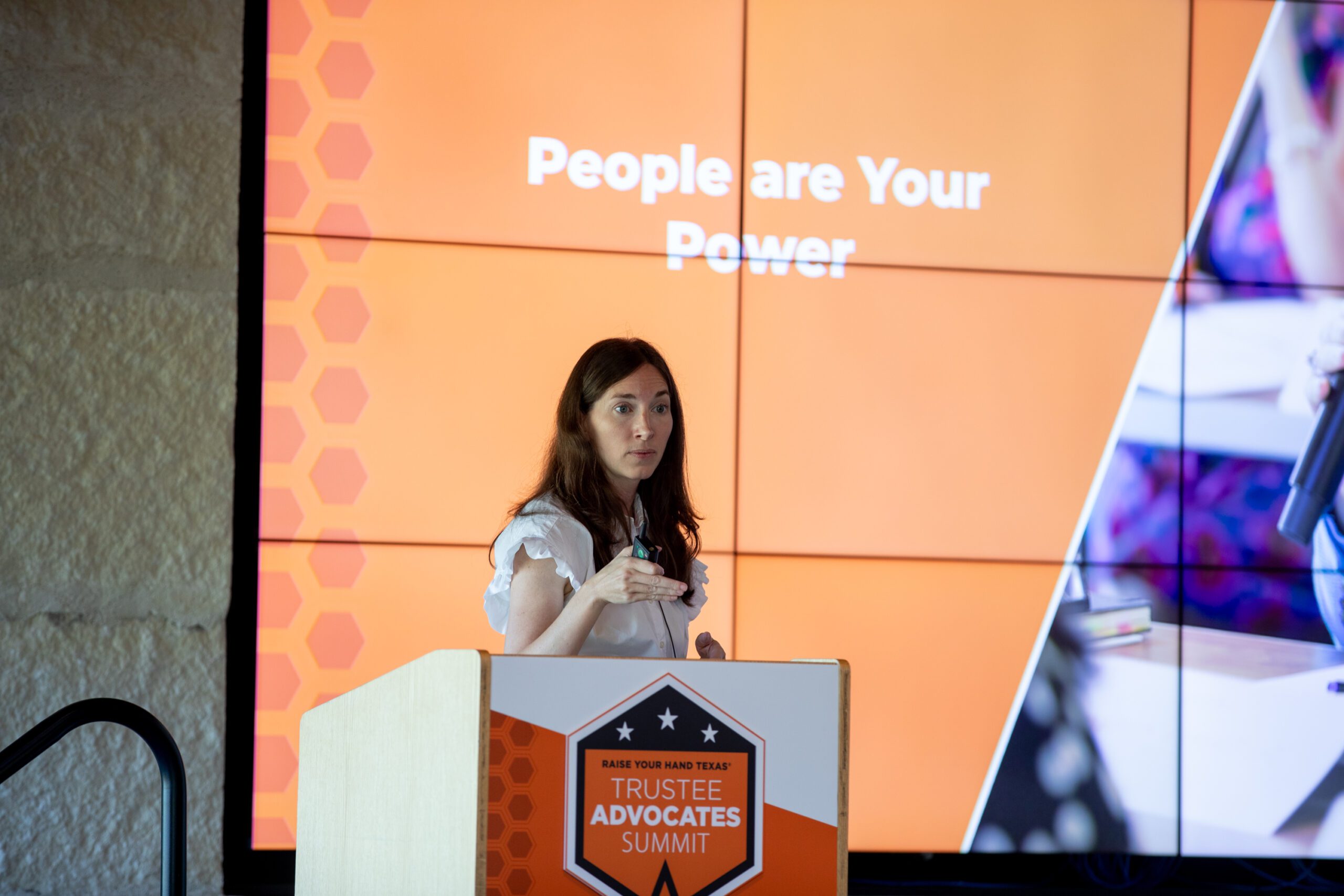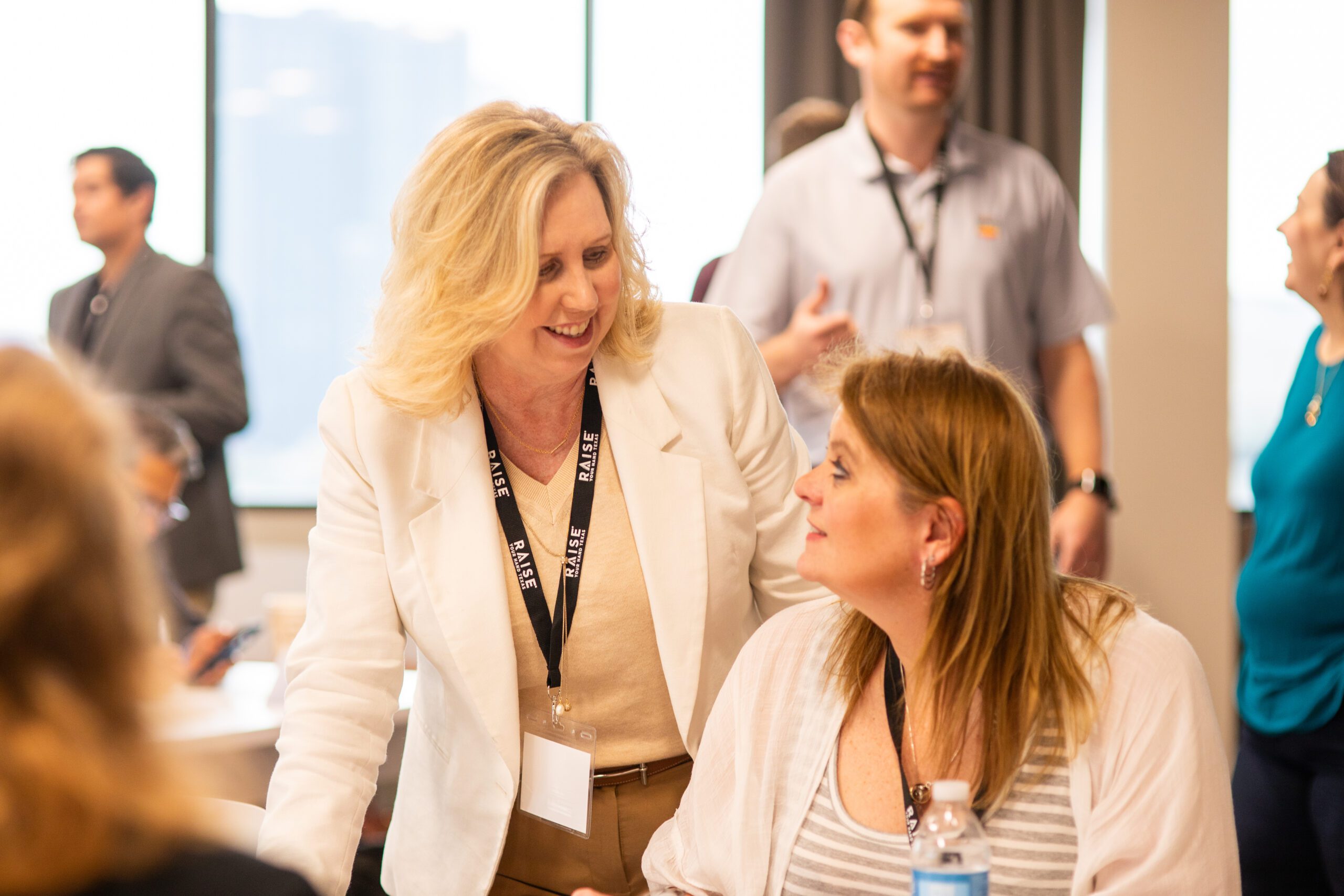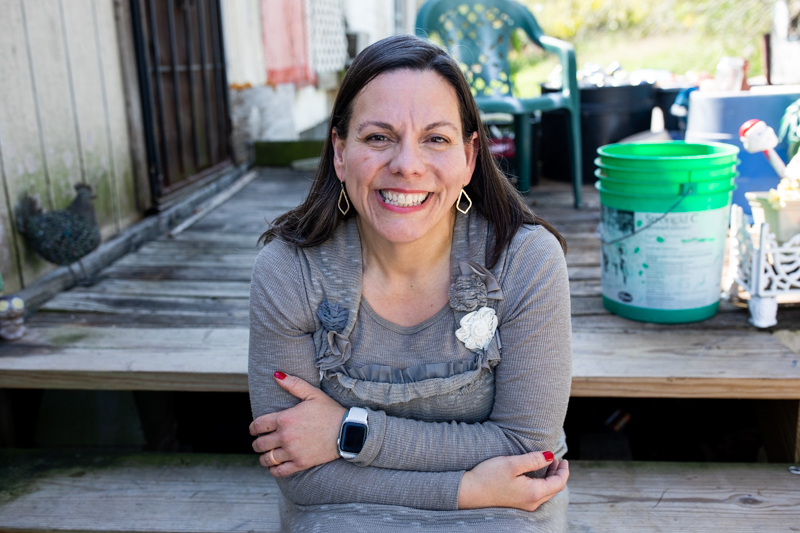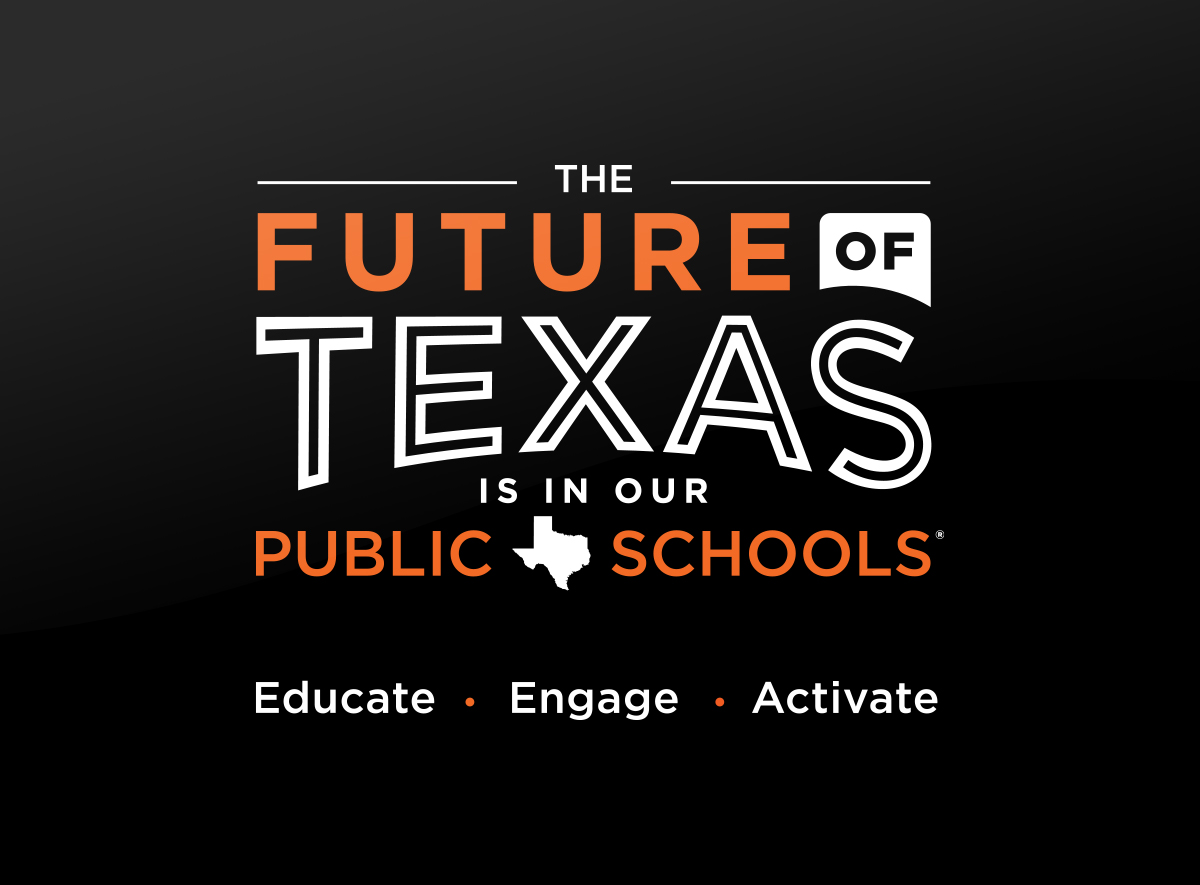
categories
I am Paredes Pride

February 28, 2019
STORY
I AM PAREDES PRIDE
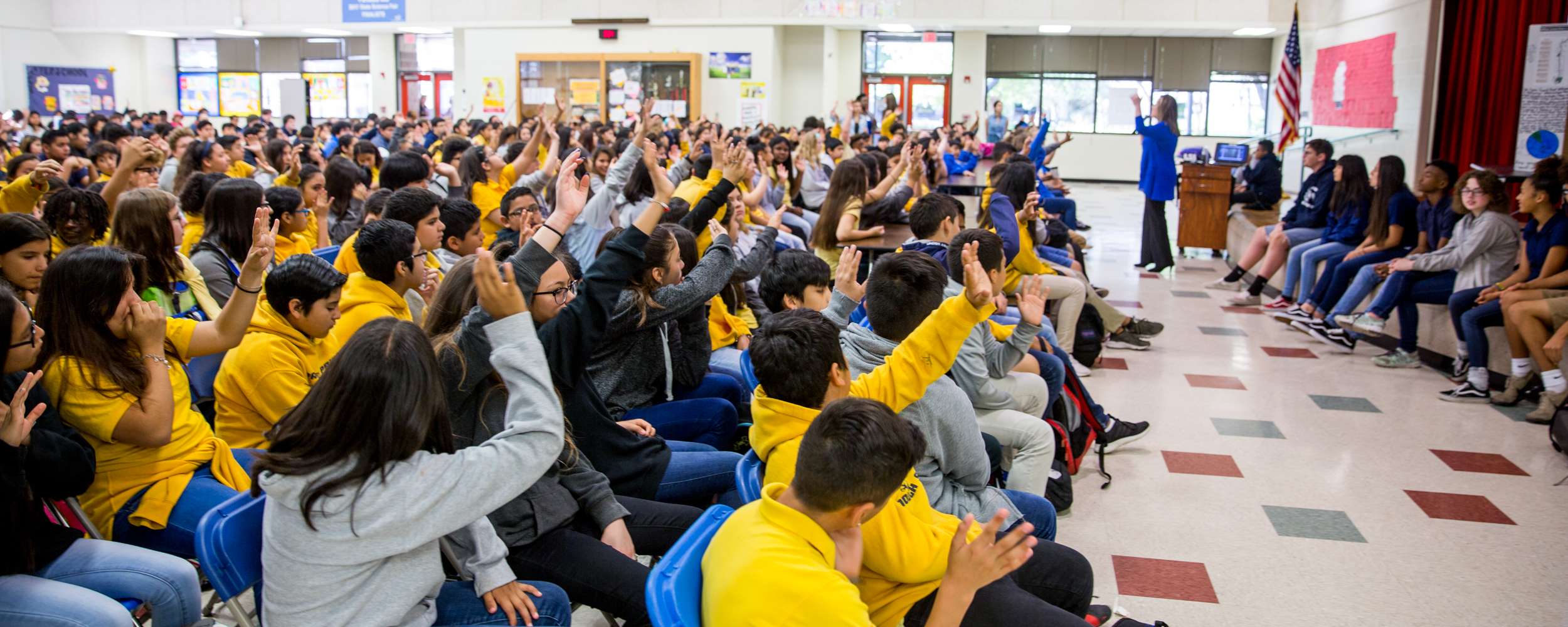
At Paredes Middle School every student is encouraged to see their own greatness and given a platform to be a leader.
*The story reflects interviews and data from the 2017-2018 school year.
Principal Valerie Torres-Solis calls out to a noisy cafeteria full of middle school students, “Say it loud say it proud. PAREDES PRIDE.”
The room shouts back:
“ENOUGH SAID!”
“PAREDES PRIDE!”
“ENOUGH SAID!”
The words hang in the air as a hush falls on the room.
At Paredes Middle School in Austin ISD, each week kicks off with two back-to-back meetings of roughly 450 students each that set the tone for the week ahead.
At the start of a ritual Monday meeting, Principal Torres-Solis instructs the students, “Turn to your neighbor, shake his or her hand, and say, ‘Good morning!’” All students follow suit and greet the person to their right and left.
Next, Torres-Solis calls out, “Tell the person next to you,’You are awesome.’” Again, the students turn to the person to their right and left, and share the words of affirmation.
The remainder of the meeting follows in this call-and-response style, punctuated with students standing at the front of the room sharing about projects or delivering announcements. Each speaker stands tall and calls out, “My name is _____, and I am Paredes Pride!”
The convening jump starts the week with a sense of camaraderie—from celebrating student success in academics, extra-curriculars, and athletics to making space for collective student grief or joy and giving students a platform to proudly rise and speak in front of their peers.
“It’s important that we help our kids understand this is a community where we celebrate each other and we celebrate greatness,” Torres-Solis explains. “I love middle school because it’s that time where you can inspire students to either love school or hate school. Our job here is to inspire them to love school and embrace education, to really see who they are and love who they are, and stand with pride.”
Challenging Unlikely Leaders to Deliver Lasting Impacts
This unified pride—born of a culture of high expectations—didn’t always exist at Paredes.
“When I got here, there wasn’t a big example. Paredes had a bad record,” says eighth-grade student Jonathan Moreno Cedillo. “Ms. Torres-Solis came in and she made that change. I look up to her and how positive she was at times, and times were hard. She kept her head up and maintained that focus, and a drive to do better.”
Torres-Solis took the helm as principal ahead of the 2014-2015 school year. She noticed the teachers spoke of the school with pride, but students didn’t share the same sense of community and school culture. The campus struggled with high discipline referral rates and regular fights. Students weren’t excited to come to school.
To reshape the campus culture, Torres-Solis reached out to campus ringleaders and bullies, students known for seeking attention in negative, disruptive ways. She told them they were not defined by their mistakes, to take pride in who they are, and to own their stories. She asked them to channel their energy into becoming student leaders on campus.
And it worked.
“On the first day of school, it was the students who had the most challenges from the previous year who stood toe-to-toe with me, side-by-side, and showed our students this is going to be a different day. You are going to now see your own greatness. You are going to see your own excellence and step into that and know what that feels like to be obtaining attention that is positive, that is productive, that is professional.”
Torres-Solis reports that in the first year referrals fell by nearly 35 percent, and fights reduced by 50 percent.
A group of student leaders pose for a photo with their principal, Valerie Torres-Solis. Torres-Solis has received executive coaching and support through the E3 Alliance RAISEup Texas program.
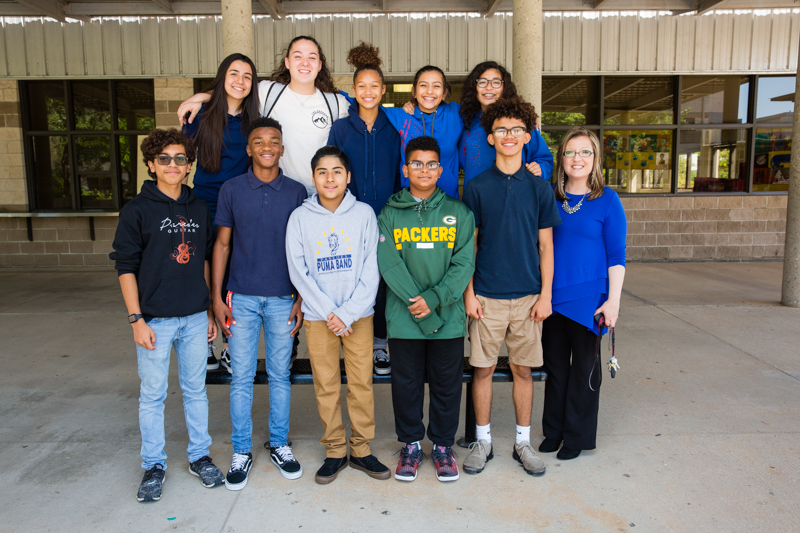
(Left) At Paredes Middle School, each week kicks off with a school-wide meeting to set the tone for the week ahead.
(Right) Eighth-grade students present their award-winning civics project at a Monday morning meeting.
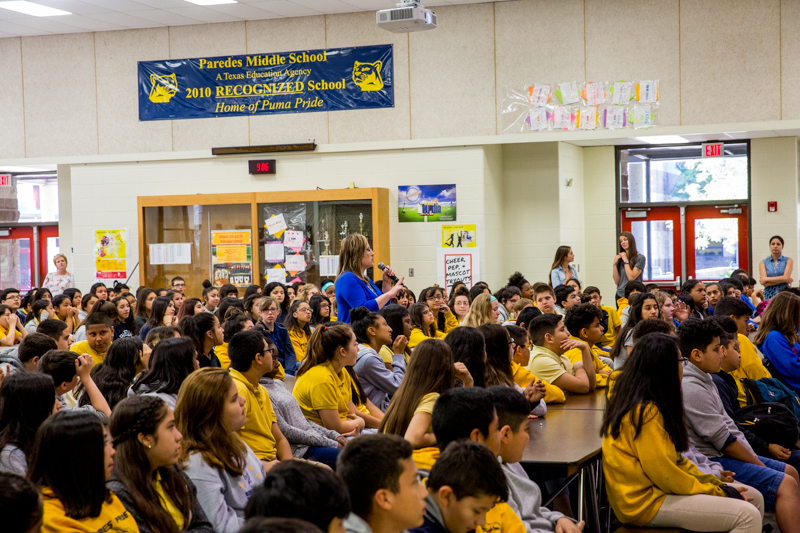
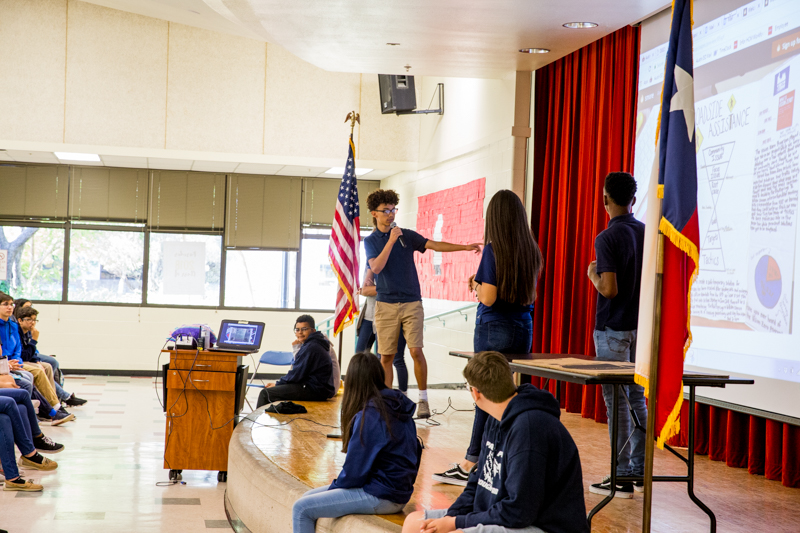
Student Stories
Three years later, the personal stories of Paredes students best reflect the powerful new culture on campus.
Melanie Cantu, now an eighth grader, did not start out feeling like a leader, even though she had more than proven her ability to step up at home. Her father had been in a motorcycle accident many years before and his wound never properly healed. Eventually, he had to have a limb removed, which put him in the hospital for four months. At 10 years old, Melanie missed school to take more of a leadership role at home and help support for her father, mother, and brother. When she returned to school she was behind and felt isolated.
When she entered sixth grade, Melanie says Paredes gave her the support and space to step up as a campus leader. “In this environment where everybody is trying to be that bigger person, it made me feel like I didn’t have to hide anymore. I could share my story with my friends or with my principal, or with other students athletes, and I’d be okay because so many other people are going through maybe the same thing.”
It was Paredes where Melanie found her confidence, and her voice. “I started saying that I could actually be somebody other than just Melanie Cantu. I could put a bigger label on my name and just show others that you really can do anything you want. To me, my greatness and the greatness of others means that not only do I want to see myself succeed, but I want to empower others to also succeed.”
Eighth-grade students Melanie Cantu (left) and Ariana Martinez pause for a photo on the way to class.
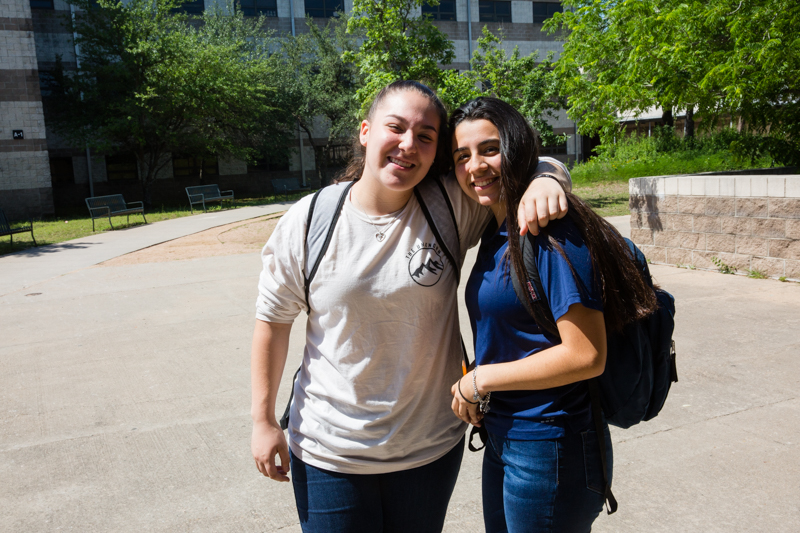
Many other students like Melanie have dealt with life-altering events. Many take on caretaker roles at home. Many will be the first in their family to attend college or even high school. The campus culture encourages them to speak with pride in who they are, and who their families are and to aspire to greatness.
“Success to me would look like dreaming big,” says Edan Tapia, an eighth grader. “For me, mechanical engineering is what I would look forward to. No one in my family has made it to college other than my sister. No one in my family has gone to a Ph.D., which is one of my goals. Trying to get up to a Ph.D. in mechanical engineering … I have all As right now, probably in the top 10 percent. I want to try and make it in the top 5 percent in high school. That’s going to be a big challenge, but I’m going to try and reach that goal because I know myself, I have that self-esteem and I can do it.”
Jonathan, who was part of the initial cohort of student leaders, dreams of finishing college and giving back to his parents. “No one in my family has a degree past elementary. That makes them so proud of me. My motto in life is to never settle.”
Jonathan’s time at Paredes has also helped him see beyond the goals he set for himself. As he prepares to move on from middle school, he wants to leave a lasting impact by grooming younger students to step into leadership roles. “Right now we are good leaders, but we want them to be better than us. We are here to empower each other to be the best and greater than what we can be.”
Starting that journey, he said, is as simple as the words he recites each week during the assembly.
“Parades Pride. Enough Said.”
